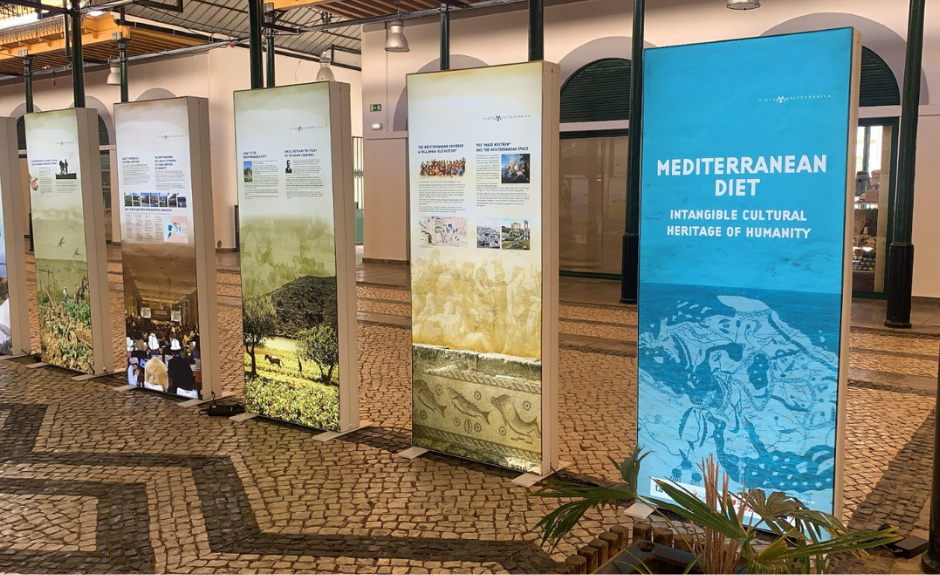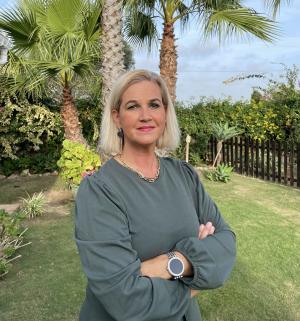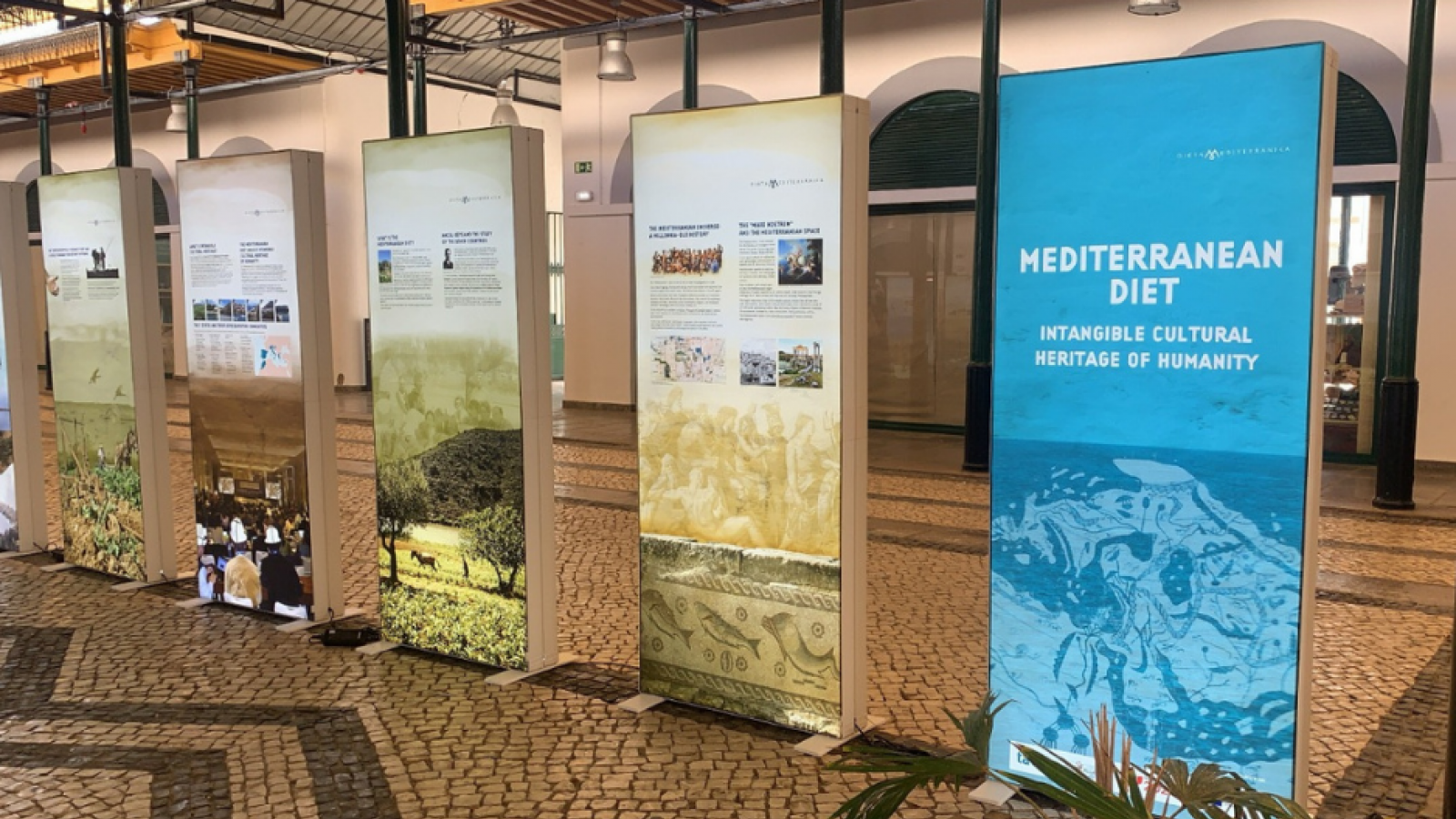iHERITAGE project in Portugal: a tool to promote the Mediterranean diet and diversify tourism

The year of 2023 comes to an end and we should not forget to celebrate the 20th anniversary of the UNESCO intangible cultural heritage and the 10th anniversary of the Mediterranean diet being recognised by the UNESCO as an intangible cultural heritage asset. Beyond the symbol of our healthy, slow, outdoor and community way of living, the Mediterranean diet has to be preserved as part of our identity and shared as part of an intercultural experience.
What does intangible cultural heritage mean?
When we think of cultural heritage, what usually come to our mind are tangible assets such as monuments. However, the concept embraces much more then archaeological sites and valuable historical buildings.
Cultural heritage englobes traditions or living expressions inherited from our ancestors and passed on to our descendants, such as oral traditions, performing arts, social practices, rituals, festive events, knowledge and practices concerning nature and the universe or the knowledge and skills to produce traditional crafts. All these assets have an important role to maintain cultural diversity. An understanding of the intangible cultural heritage of different communities helps with intercultural dialogue and encourages mutual respect for other ways of life[1].
That is why the United Nations Educational, Scientific and Cultural Organization (UNESCO) ratified the Convention for the Safeguarding of the Intangible Cultural Heritage in 2003. Twenty years later, in a complex globalised world, it seems necessary to remind the importance of our cultural diversity and celebrate it.
Promoting Mediterranean UNESCO cultural heritage assets through iHERITAGE project
The ENI CBC MED programme wanted to know more about Mediterranean UNESCO cultural heritage assets and what role does iHERITAGE project play in promoting some of them. We took the time to interview Ms. Alexandra Gonçalves, teacher and researcher at the University of Algarve with a PhD in tourism and a special focus on cultural tourism. She is the responsible of the implementation of iHERITAGE in Portugal. This project aimed to use IT tools such as Augmented Reality, Virtual Reality, the development of applications on smartphones to enhance the access to Mediterranean UNESCO cultural assets.
In the case of Portugal, the university of Algarve together with the municipality of Tavira, the Science Centre of Tavira and Algarve as well as Artgilão worked to promote the Mediterranean diet as an intangible cultural heritage asset by developing routes in which visitors can live the experience of a Mediterranean lifestyle.
Portugal, a Mediterranean country
Although Portugal does not have direct coast to the Mediterranean Sea, some regions of the country are really Mediterranean, mainly Alentejo and Algarve. Not only does Portugal is ranked 7th worldwide in olive oil production in 2023, but also the traditions, the community lifestyle, the crops people grow, all these aspects indicate that Portuguese people especially from the South are, and feel Mediterranean.
10th anniversary of Mediterranean diet inscribed on UNESCO intangible heritage list
In 2013, the UNESCO registered the Mediterranean diet on the Representative List of the Intangible Cultural Heritage of Humanity. This recognition is important to know more about the Mediterranean identity and its authentic values, to be more aware of them and then promote it to make sure we preserve it and pass it to the next generations.
As Ms Gonçalves explained, it is not an easy task to define the Mediterranean diet as it is linked to everyday life practices, to repeated actions. It is related to values inside our minds and community. Hence, the difficulty to explain it to other people. It is closely linked to the weather, to outdoor living, to sharing meals in big groups.
In a world that goes at a high speed, in which going fast marks our pace, we easily forget the slow, authentic Mediterranean lifestyle. A way of living that connects with our territories through harvesting, fishing practices, etc.
iHERITAGE implements IT tools to get to know Mediterranean diet in the south of Portugal
The region of Algarve is mainly visited by people attracted by the sun and beach tourism. However, the region has much more to offer. Therefore, iHERITAGE partner, the university of Algarve, worked with many entities such as the municipality of Tavira, local vineyards, the regional board of tourism, olive oil producers, craftsmen to create a new narrative that promotes the Mediterranean diet. Thanks to IT tools, they developed augmented reality leaflets and virtual routes through an application available on Android and iOS . These routes can only be activated once the visitors are there. They can enjoy an olive oil route, get to know locals and their stories, visit vineyards and taste local wine, take part in a workshop to learn about traditional handicrafts. By the end of the day the idea is to make people discover hidden places in the rural areas of the interior of Algarve region.
Boosting sustainable tourism and the local economy
The Algarve region is aware of the importance of tourism diversification and since the last 3 decades, it has started planning for a different tourism. Moreover, this region witnesses the desertification of people from rural areas. It is much easier to make out a living working on the coast, leaving the interior region nearly empty. That´s why project such as iHERITAGE not only remind us on the importance of Mediterranean diet in our lives but also could contribute to slow down the rural exodus and demonstrate that another tourism is possible.











